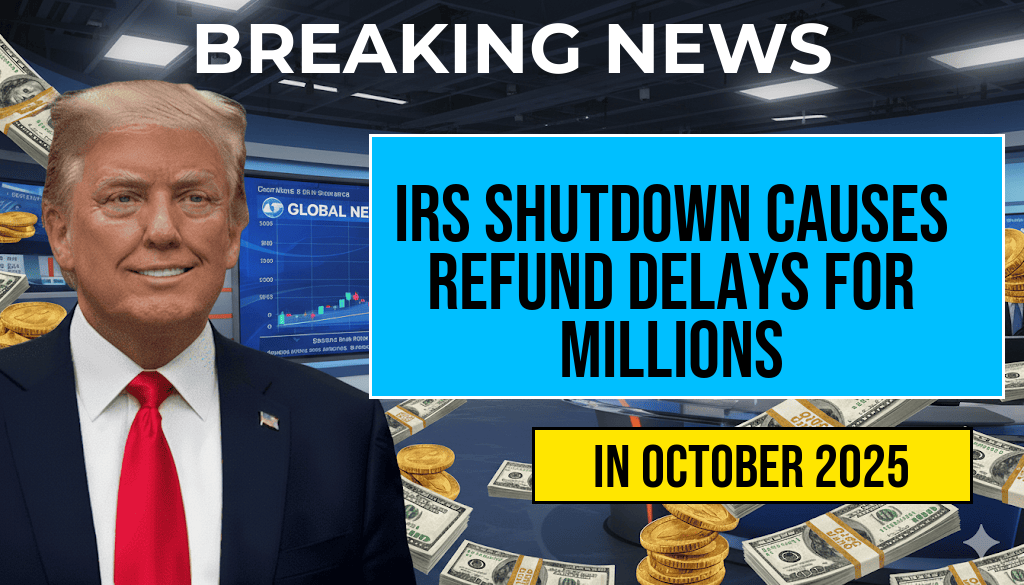The recent furloughs at the Internal Revenue Service (IRS) have raised significant concerns for taxpayers regarding their tax extensions and refund processes. As the agency grapples with staffing shortages, the operational impact is becoming increasingly apparent, particularly during peak tax season. Many Americans who filed for extensions or are awaiting refunds are left in limbo, navigating a complex landscape marked by limited service availability. The so-called “$0 Service Window” has emerged as a critical period that could affect the timely processing of tax documents and refunds, leaving taxpayers uncertain about their financial futures.
Understanding the $0 Service Window
The term “$0 Service Window” refers to the timeframe during which the IRS is unable to provide adequate support or services to taxpayers due to furloughs and staffing limitations. During this period, the IRS has suspended many of its functions, including processing tax returns, handling refund requests, and responding to inquiries. The lack of available resources has led to increased wait times and delays in processing, leaving many taxpayers frustrated and anxious.
What This Means for Tax Extensions
Tax extensions allow individuals and businesses extra time to file their tax returns, but they do not extend the deadline for payment. With the IRS currently facing furloughs, taxpayers who filed for an extension may experience complications:
- Delayed Processing: Extended deadlines may not be processed promptly, causing uncertainty about filing status.
- Limited Communication: With many employees on furlough, it may be challenging to reach the IRS for clarification or assistance.
- Potential Penalties: Taxpayers who owe taxes may still face penalties for late payments if their returns are not processed in time.
Impact on Tax Refunds
For those expecting refunds, the furloughs have created a backlog that could delay the receipt of funds. The implications for taxpayers are significant:
- Processing Delays: Refunds may take longer than usual to process due to staffing shortages.
- Increased Inquiries: Taxpayers may find themselves having to check the status of their refunds more frequently, leading to further frustration.
- Uncertainty in Financial Planning: Delayed refunds can disrupt personal and business financial planning, affecting budgets and cash flow.
How to Navigate the Current Tax Landscape
To effectively manage the challenges posed by the IRS furloughs, taxpayers can take several proactive steps:
- Be Informed: Stay updated on IRS announcements regarding furloughs and service availability by visiting the official IRS website.
- File Electronically: If possible, file tax returns electronically to minimize processing delays.
- Use Online Tools: Utilize the IRS’s online tools to check the status of refunds and ensure that all necessary documentation is submitted.
Resources for Taxpayers
Taxpayers seeking more information or assistance can refer to the following resources:
- IRS Official Website – Access forms, filing information, and updates directly from the IRS.
- Forbes on IRS Furloughs – An article exploring the implications of IRS staff shortages for taxpayers.
- Wikipedia – Internal Revenue Service – A comprehensive overview of the IRS, its functions, and historical context.
Conclusion
The IRS furloughs have created a challenging environment for taxpayers, particularly those dealing with extensions and waiting for refunds. Understanding the implications of the “$0 Service Window” is essential for effective planning and management of tax responsibilities during this uncertain period. By staying informed and utilizing available resources, taxpayers can navigate these challenges more effectively.
Frequently Asked Questions
What are IRS furloughs and how do they affect tax services?
IRS furloughs refer to temporary leave of absence for IRS employees, typically due to budget constraints. During these periods, the IRS may reduce or suspend services, impacting the processing of tax extensions and refunds.
How does the $0 service window relate to my tax extension?
The $0 service window indicates that during certain furlough periods, the IRS may not process any tax-related requests, including extensions. This could lead to delays in receiving confirmation for your extension.
Will my tax refund be delayed due to IRS furloughs?
Yes, if you have filed for a tax refund during the IRS furlough period, it is likely that your refund will be delayed. The IRS may not be able to process claims until normal operations resume.
What should I do if I need assistance during an IRS furlough?
During an IRS furlough, assistance may be limited. It is advisable to check the IRS website for updates and utilize available resources, such as online tools, for any immediate tax needs.
Can I still file my taxes during an IRS furlough?
Yes, you can still file your taxes during an IRS furlough, but be aware that processing times for extensions and refunds may be significantly longer due to reduced staffing and services.








